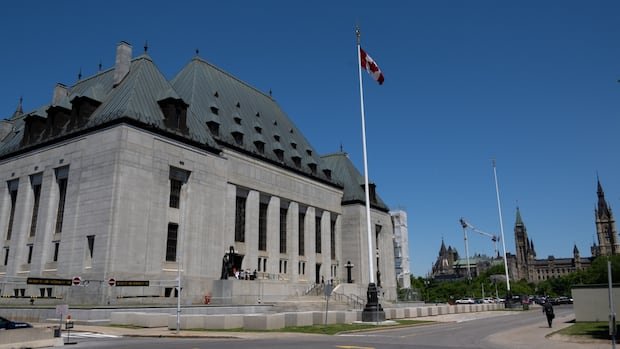The federal government has requested the Supreme Court of Canada to establish boundaries regarding provincial governments’ use of the Notwithstanding Clause to override the Charter of Rights and Freedoms. Ottawa made this request in a written legal argument, known as a factum, which was submitted to the court on Wednesday. This request is part of a significant case involving Quebec’s secularism law, Bill 21.
Quebec has invoked the Notwithstanding Clause in its legislation, enabling provinces to protect laws from constitutional challenges. However, the federal government has urged the court to set limitations on how the Notwithstanding Clause can be employed, asserting that its repeated use could indirectly alter the Constitution. The government argued that the court should have the authority to determine if the clause could lead to irreversible violations of Canadians’ rights.
Ontario and Alberta have expressed support for the Notwithstanding Clause, emphasizing its importance in preserving provincial legislative sovereignty. They defended Quebec’s proactive use of the clause in passing the 2019 secularism law, which prohibits public sector workers in authoritative roles from wearing religious symbols while on duty.
Ontario’s attorney general stated that the province does not endorse Quebec’s requirement for individuals to remove religious symbols when interacting with the public or using public services. Nevertheless, Ontario believes that such decisions fall within Quebec’s jurisdiction and the purview of its citizens.
Both provinces highlighted that the Notwithstanding Clause, Section 33 of the Canadian Charter of Rights and Freedoms, played a vital role in the negotiation of the 1982 Constitution and safeguards provincial legislative autonomy. This clause grants governments the power to override certain Charter rights and safeguard legislation from constitutional challenges.
The Supreme Court has agreed to review a legal challenge against Bill 21 brought by various opposing groups, although a hearing date has not been scheduled. While some parties are seeking restrictions on the preemptive use of the Notwithstanding Clause, Ontario argues that such limitations would lead to legislative uncertainty and potential delays in enacting new laws.
Alberta argued that courts issuing non-binding declarations on laws enacted with the Notwithstanding Clause would essentially become advocacy groups influencing public opinion. Several provinces have intervened in the Supreme Court case, with the usage of Section 33 increasing in other provinces following the passage of Bill 21 in Quebec.
In a separate development, the Saskatchewan Court of Appeal ruled that courts can issue declarations on rights violations in legislation invoking the Notwithstanding Clause, a stance Quebec opposed in its arguments to the Supreme Court. Prime Minister Mark Carney has expressed disapproval of the proactive use of Section 33. Bloc Québécois Leader Yves-François Blanchet accused Carney of using the Notwithstanding Clause as a pretext to criticize Quebec’s secularism approach, urging transparency in such disagreements.


